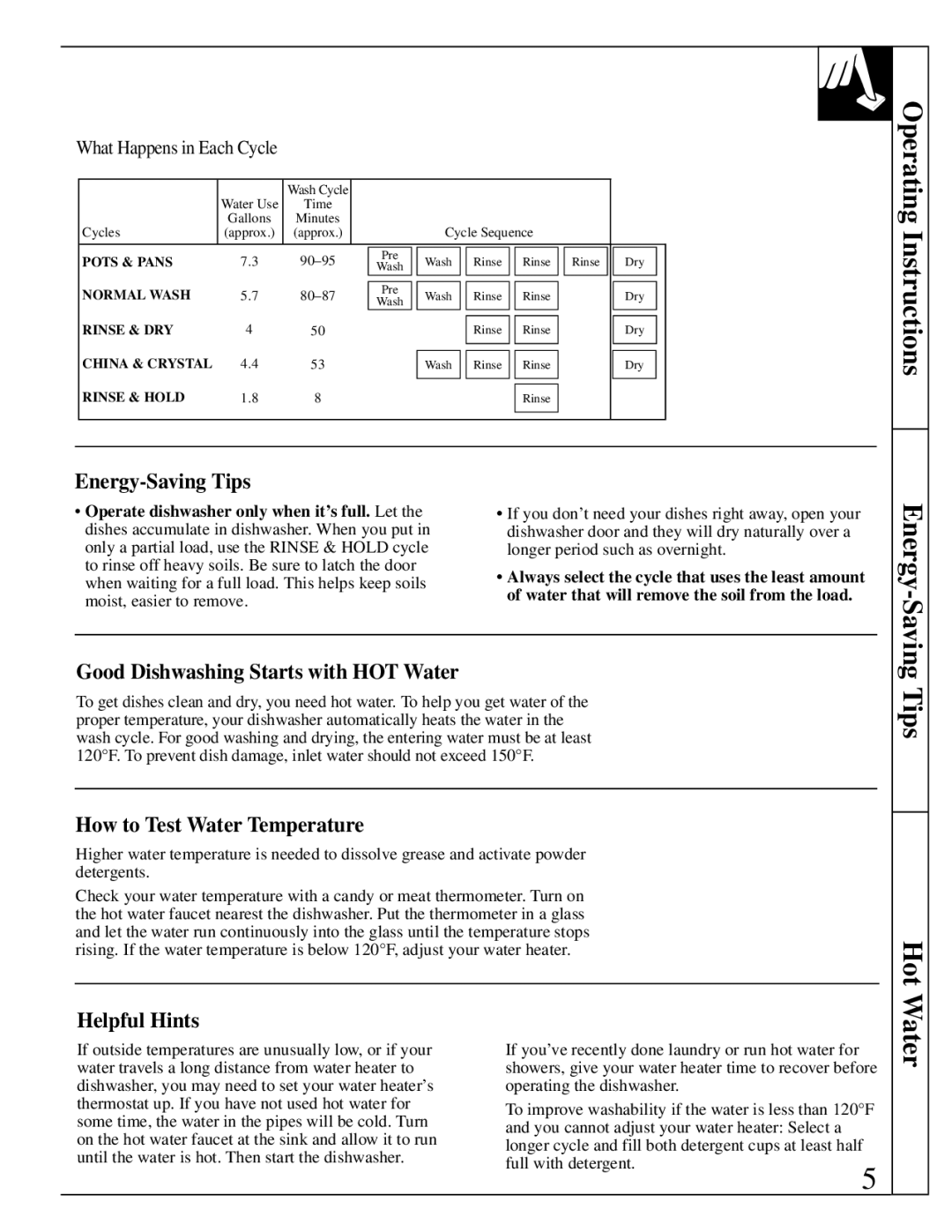ZBD4700 specifications
The GE Monogram ZBD4700 is a sophisticated under-counter dishwasher that exemplifies luxury and performance in kitchen appliances. Designed for the modern household, this model seamlessly combines advanced technology with user-friendly features, making it one of the most sought-after dishwashers on the market.One of the standout features of the GE Monogram ZBD4700 is its spacious capacity. With the ability to accommodate up to 16 place settings, this dishwasher ensures that families can efficiently clean large loads of dishes, glassware, and utensils in a single wash cycle. The interior is crafted with adjustable racks and fold-down tines, providing flexibility to organize items of various sizes, from delicate wine glasses to bulky pots and pans.
In terms of performance, the ZBD4700 is equipped with a powerful and efficient wash system. It utilizes a unique wash arm configuration that ensures water is evenly distributed throughout the interior, resulting in thorough cleaning. Additionally, the dishwasher features multiple wash cycles and options, including a dedicated sanitization option that eliminates 99.9% of bacteria, making it an excellent choice for households concerned about hygiene.
The quiet operation of the GE Monogram ZBD4700 is another appealing characteristic. With a noise level of just 42 decibels, it runs quietly in the background, allowing family members to carry on with their daily activities without disturbance. This makes it ideal for open-concept living spaces where noise can be a concern.
Furthermore, the ZBD4700 integrates advanced technologies such as Smart Dispense, which automatically releases the perfect amount of detergent needed for each load, optimizing cleaning power while minimizing waste. This feature not only enhances convenience but also contributes to a more sustainable approach to dishwashing.
The design of the GE Monogram ZBD4700 is equally impressive. Its sleek stainless steel exterior and customizable panel options allow it to blend seamlessly with any kitchen decor. The intuitive control panel, featuring touch-sensitive buttons and a digital display, makes it easy for users to select their preferred settings and cycle options.
In summary, the GE Monogram ZBD4700 dishwasher stands out for its blend of capacity, advanced cleaning technologies, quiet operation, and elegant design. With a commitment to performance and user convenience, it is a premium choice for those looking to elevate their kitchen experience while maintaining impeccable cleanliness.

